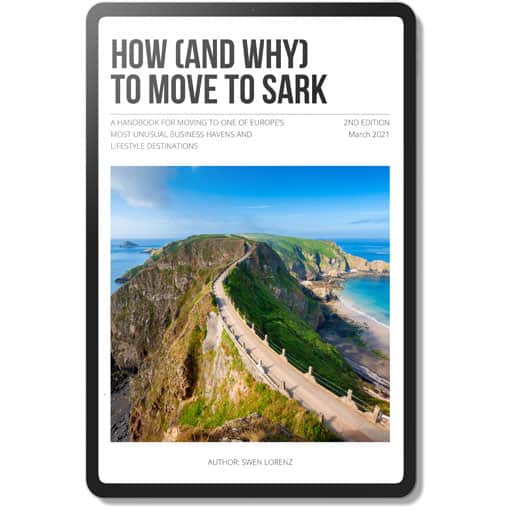If you are considering to launch a venture in the digital media space, this article might shatter some of your perceptions about how easy you hope it will be, as well as give you some concrete guidelines for impressing a specialised digital media investor. First, the bad news. Fundraising, whether for a digital media venture or another sector, will likely be the most difficult thing you have ever done in life. Yes, there is a booming start-up scene in London as well as in plenty of other places. The mainstream media regularly reports about cases of significant funding agreements for early-stage firms. Also, entrepreneurs nowadays have entirely new avenues for raising funds, such as equity crowdfunding platforms.
Fundraising, whether for a digital media venture or another sector, will likely be the most difficult thing you have ever done in life.
Sadly, if this has led you to believe that fundraising for an early-stage venture must be easier than ever before, you are mistaken.
Competition for funding is fierce
I happen to know the inside figures of one particular crowdfunding firm. They receive well over 1,000 proposals per month (sometimes going on 1,500). The actual number of fundraising pitches they subsequently launch on their platform is around 10. In other words, they turn down >99% of all proposals they receive. It is just a single example, but you should never underestimate just how much competition there is for the available investor funding. Pretty much any serious investor I know of gets at least 100 times more proposals than he/she subsequently invests into. Look at it from your perspective, and it’ll mean that you need to first speak to 99 investors before the first one agrees to come on board.
You should never underestimate just how much competition there is for the available investor funding.
There are plenty of stories about brilliant entrepreneurs whose plans were turned down by so many funders that they were just about to give up. E.g., check my story about the funding of Innocent, the now famous smoothie maker that made its founders rich. They only succeeded raising funds when they launched their last ditch effort (with which they simply got lucky).
Advice from an early-stage investor
The good news is, though, that you can nowadays tap all sorts of people for advice. Properly preparing your fundraising approach increases the chance of you succeeding. Recently, I had the good opportunity to dine with Jean de Fougerolles, the CEO of Ascension Ventures. Jean has had a long history of working in media and technology, and he subsequently migrated into the investment industry. Among his success stories is his angel funding of Atom Films, a company that was sold to Viacom for $200m. Ascension Ventures focuses on early-stage investments in digital media and related areas. Recently it was invested in over 50 companies. A dinner organised by “TableCrowd” (more about them at the bottom of this article) allowed me to listen to his advice to entrepreneurs in this particular industry. Without a guarantee of total accuracy, here are the notes I jotted down while having dinner with Jean and a small crowd of other entrepreneurs:
- Jean and his investment committee will first look at your product. How unique is it? What problem does it solve? Consider this to be your first hurdle to take.
- The path to market is the next big challenge. How will you get this beautiful product that you love dearly to the market? Many entrepreneurs fail at this hurdle. Just saying that you will growth-hack isn’t going to cut it. You need to be very specific in demonstrating how you will get the product launched successfully.
- Ascension Ventures doesn’t believe in B2C because consumers don’t want to pay for anything anymore. B2B2C is fine. (Although, Jean admits there are exceptions to each rule!)
- How defendable is your intellectual property? What’s even more important to Jean than patents is proprietary technology. E.g., large databases that become more valuable (and more difficult to replicate) as they grow. Do expect to be challenged on how defensible your IP is.
- The no. 1 factor for Jean is the team. As he put it, “It is very, very important.” Ascension Ventures tends to ask for at least two co-founders at seed stage; although that can also change later. Early-stage companies need to have a balance of talent, e.g. one co-founder needs to be able to sell the company, and another one needs to have technical skills. Keep in mind that CEOs in London cost £120k to £150k per year (and up). Having co-founders that are paid primarily through the value appreciation of their equity is very important for investors, to minimise the cash drain during the early stage. These co-founders need to be able to carry the company for a couple of years into the journey.
- How much money should you raise? Companies that are raising seed funding typically have between £0 and £10k in revenue per month. Whatever you raise in the seed round should last for 12 to 18 months; ideally the latter!
- During the calculation of how long a runway your seed funding will create, Ascension Ventures does not include (much) revenue growth because that usually gets delayed. Jean “always moves the revenue spike projected by the entrepreneur”. From his perspective, the key is that the revenue spike occurs eventually. After the first such spike occurs, it is possible to get out again and raise more money at a higher valuation.
- The seed funding rounds that Ascension Ventures participates in are usually £300k. A firm like Ascension would often put in £100k and expect other investors to take up the remaining part. Having several funders means there are more grown-ups who can help the CEO / co-founders with advice or (when needed) “psychiatric help”. (My recent article about Anne Boden challenges this view point.)
- You can usually move on to raise a Series A once you have about £100k in revenue per month. You do need to show how you will get there.
- Ascension Ventures isn’t overly impressed by a market’s size. What they love seeing is a business case that comes down to “unit activity”. E.g., early Facebook users stayed on the site for 10 minutes when users of other social networks stayed online for just 2 minutes. That’s what made Facebook get financial backing. Can you demonstrate one aspect where your product or service is a lot stronger than the competition? Is it month-to-month growth? What’s the kernel that drives growth?
- On the team side, be scrappy! Don’t run the business like it has one or two extra zeros on the revenue side. Do you need a desk in an expensive co-working space, or can you work from a coffee shop or a free space such as Google Campus?
- Expect that each funding round will dilute your stake by 15%. Always keep in mind that revenue is your cheapest source of capital!
- Valuations of early-stage ventures are obviously extremely difficult. A good rule of thumb is that if you have no revenue but the Minimum Viable Product (MVP) is ready, then you can expect a valuation somewhere between £1m and £2m. Seed rounds typically are £300k, and the founder(s) shouldn’t be diluted by more than 10% to 20%. You see how this takes you back to the rough valuation of £1m to £2m!
Don’t be afraid and make use of all available information sources
If these requirements sound daunting to you, don’t throw in the towel just yet. Work out a plan how to start creating answers for all of these questions one after another. Rome wasn’t built in a single day. The good news is, there are more funding sources out there than ever. Including firms like Ascension Ventures, who are specialised in a particular area and take an interest in early-stage ventures. Once you have signed up a lead investor, you might even find that you can get someone like Jean to invest into your business much faster than you might expect. Provided someone else has already done the due diligence and committed the cornerstone investment, a professional investor like Ascension Ventures could come in with a cheque based on a single meeting and a short process (Jean did describe how much easier and quicker it is for Ascension Ventures to come in if another investor has taken the lead).
There are more funding sources out there than ever.
With that in mind, and assuming you have read this article all the way to the end because you are serious about being a digital media entrepreneur, there is only one thing left for me to say. Go out there and do it! A quick note about the source material for this particular article: If you live in London or visit frequently, you might want to check out the service provided by TableCrowd. They host dinners where a speaker is invited to elaborate about their experiences relating to fundraising, building a company, selling a company, etc. I am not affiliated with them, pay for my own dinner participation, and don’t get any commission for recommending them. But they do get my wholehearted recommendation for providing an insightful and quite affordable service to the London start-up scene. If you enjoyed this, you might also find the following articles useful:
Want to print this article? Open a printer friendly version.
Did you find this article useful and enjoyable? If you want to read my next articles right when they come out, please sign up to my email list.
Share this post:


